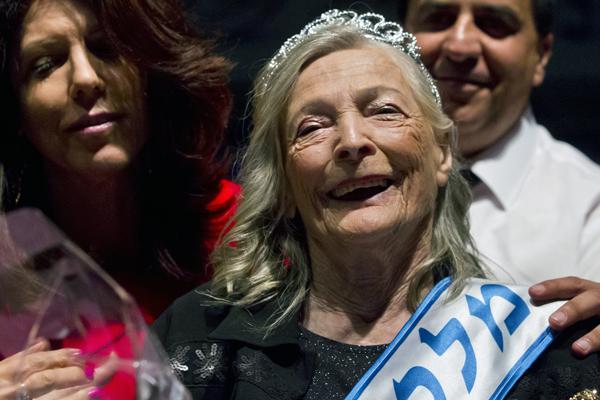Aug 26, 2013
The 18 beauty pageant finalists on stage at Haifa’s basketball stadium wear lovely gowns, their jewelry glitters, and their hair is thick with hairspray.
Unlike typical beauty contestants, the Israeli women standing before a crowd of 2,000 are ages 70 to 94. And all of them experienced the Holocaust.
Read the Full Article

Already a subscriber? Login
